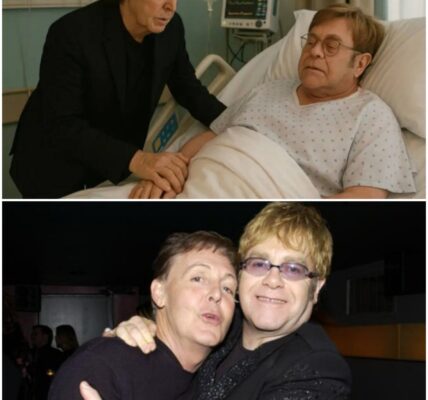John Deacon: The Silent Force Still Guiding Queen After Nearly Three Decades Away
When fans think of Queen, images of Freddie Mercury’s powerful voice, Brian May’s soaring guitar solos, and Roger Taylor’s thunderous drumming often come to mind. But behind the spotlight, bassist John Deacon played a vital role—not just with his iconic bass lines, but also through his enduring influence that continues nearly three decades after he stepped away from the band.
Deacon officially retired from Queen in 1997, following years of gradual withdrawal after Mercury’s death in 1991. Since then, he has lived quietly, far from the stage and the studio. Yet according to Brian May, Deacon still holds a surprising amount of authority within the band. In fact, May revealed that Deacon retains a “yes or no” power over key decisions, ensuring that his opinion is still sought out when it truly matters.

The Quiet Guardian of Queen’s Legacy
Unlike many retired musicians who completely cut ties, Deacon remains in the background, keeping an eye on Queen’s direction. He doesn’t seek creative involvement, but his continued oversight shows the trust and respect the band still places in him. This governance model—part autonomy, part collaboration—has allowed Queen to move forward while staying true to its roots.
It’s a striking example of loyalty. In an industry where bands often replace or marginalize inactive members, Queen continues to honor Deacon’s voice. His quiet approval acts almost like a safeguard, ensuring the band never strays too far from the principles and integrity that built their legacy.
Contributions That Still Resonate

Deacon’s musical impact is undeniable. He wrote some of Queen’s most enduring hits, including Another One Bites the Dust, I Want to Break Free, and co-wrote the legendary Under Pressure with Mercury, May, Taylor, and David Bowie. These songs remain staples of Queen’s live performances and a key part of their continued popularity across generations.
Even in his absence, Deacon’s work fuels the band’s global presence. Every time those bass-driven anthems fill a stadium or soundtrack a film, his fingerprints are there. His music keeps him present in a way that transcends physical absence.
Respect Beyond the Stage

Brian May’s acknowledgment of Deacon’s ongoing influence reveals something deeper about Queen’s dynamic: their unity. Even without regular communication, the band ensures Deacon’s role is never forgotten. His reserved lifestyle contrasts sharply with the spectacle of Queen’s ongoing tours with Adam Lambert, yet his quiet authority still matters in boardrooms, contracts, and key creative decisions.
This balance—of honoring the past while embracing the future—helps explain why Queen remains not only relevant but revered. By continuing to involve Deacon, even from a distance, the band demonstrates that loyalty and respect are as important to their identity as their music.
The Power of Lasting Influence
For Queen fans, Deacon’s ongoing influence is both surprising and comforting. It proves that real power in a band isn’t just measured by stage presence, but by the weight of one’s contributions and the respect earned from peers. Nearly 27 years after retiring, Deacon’s voice still echoes in Queen’s decisions, ensuring that the band stays true to the essence that made them legendary.
In the end, John Deacon may be silent, but his power is undeniable. He remains the quiet guardian of Queen’s legacy—proof that sometimes the strongest influence is the one felt, not seen.




